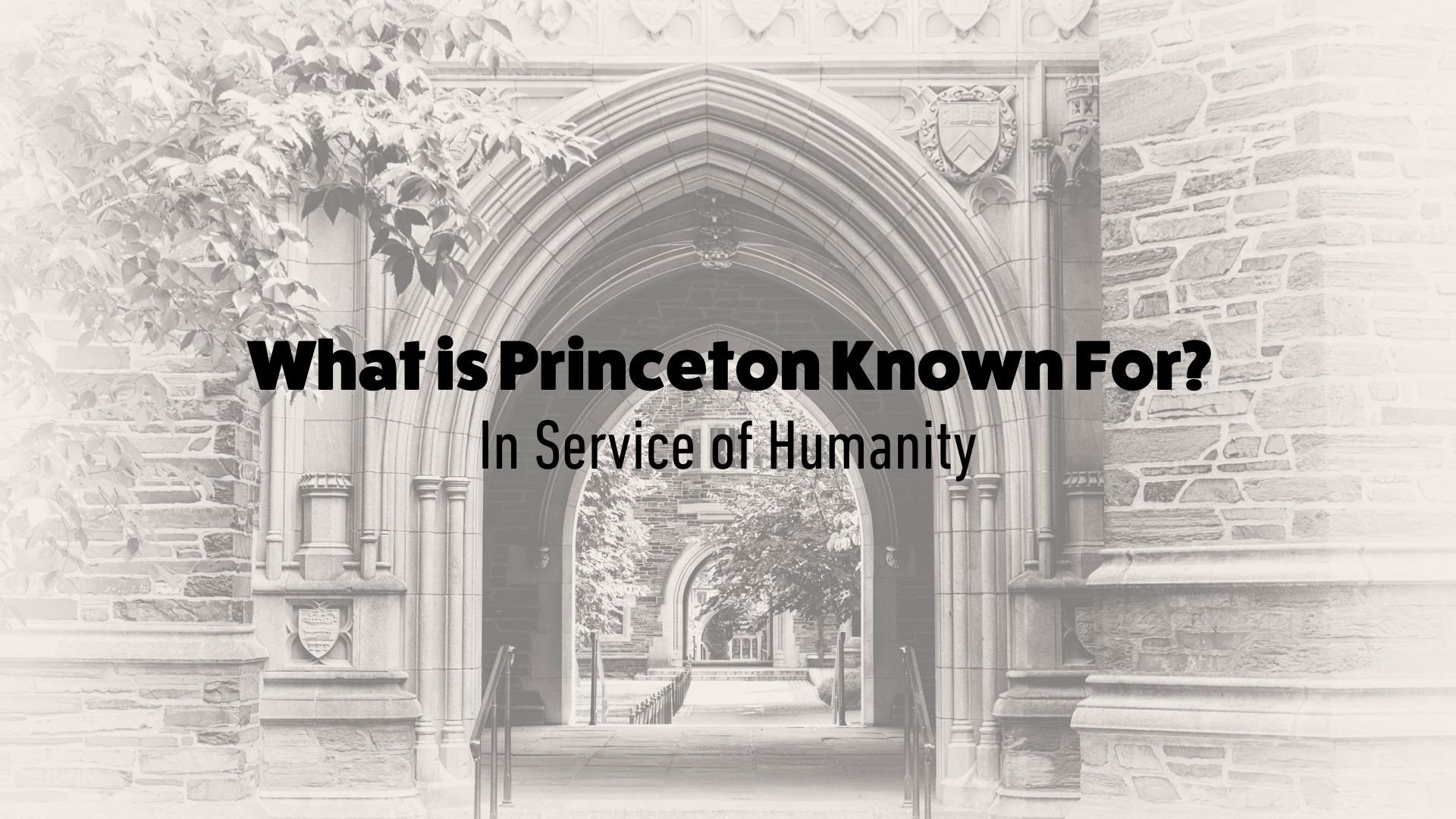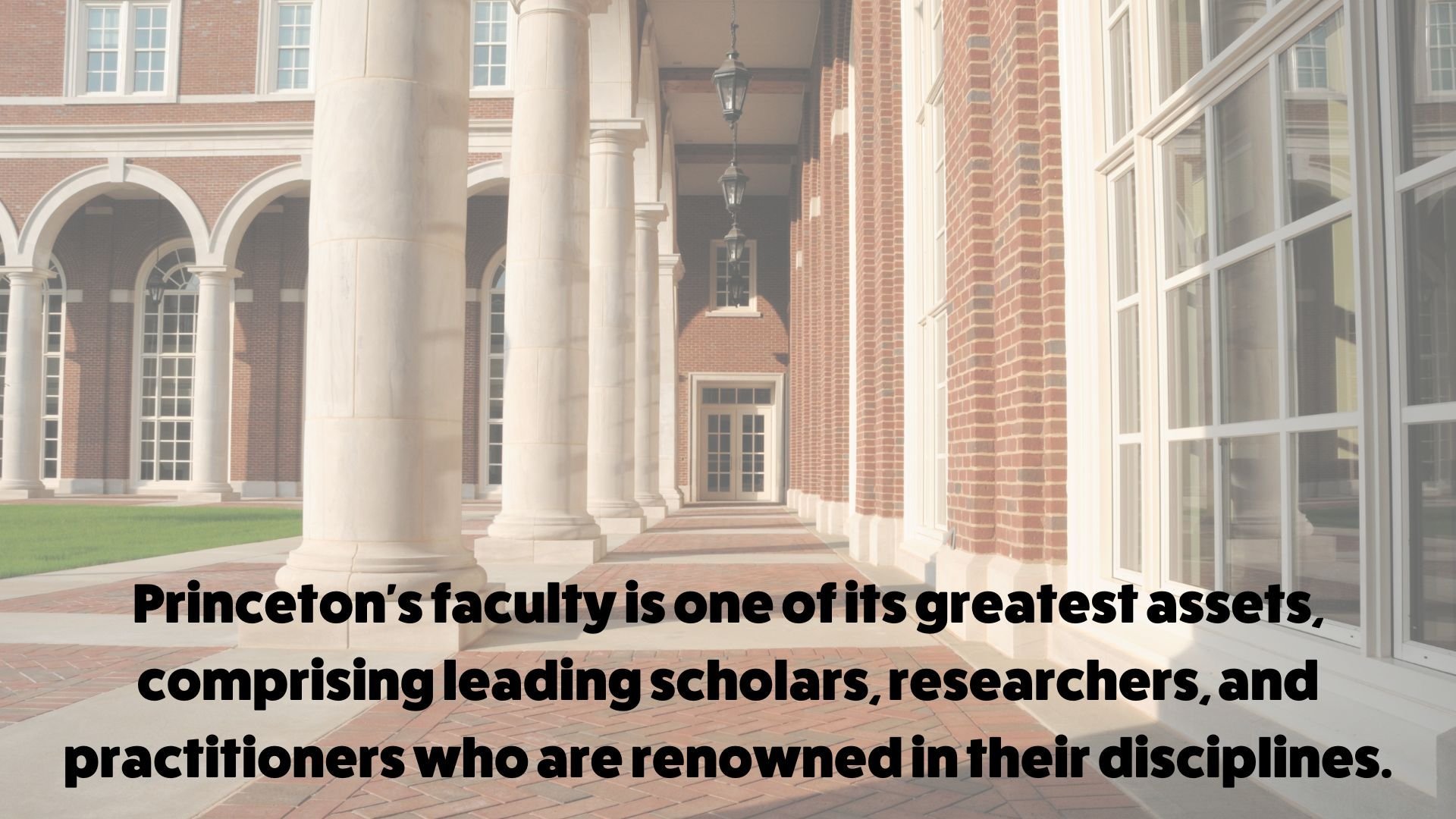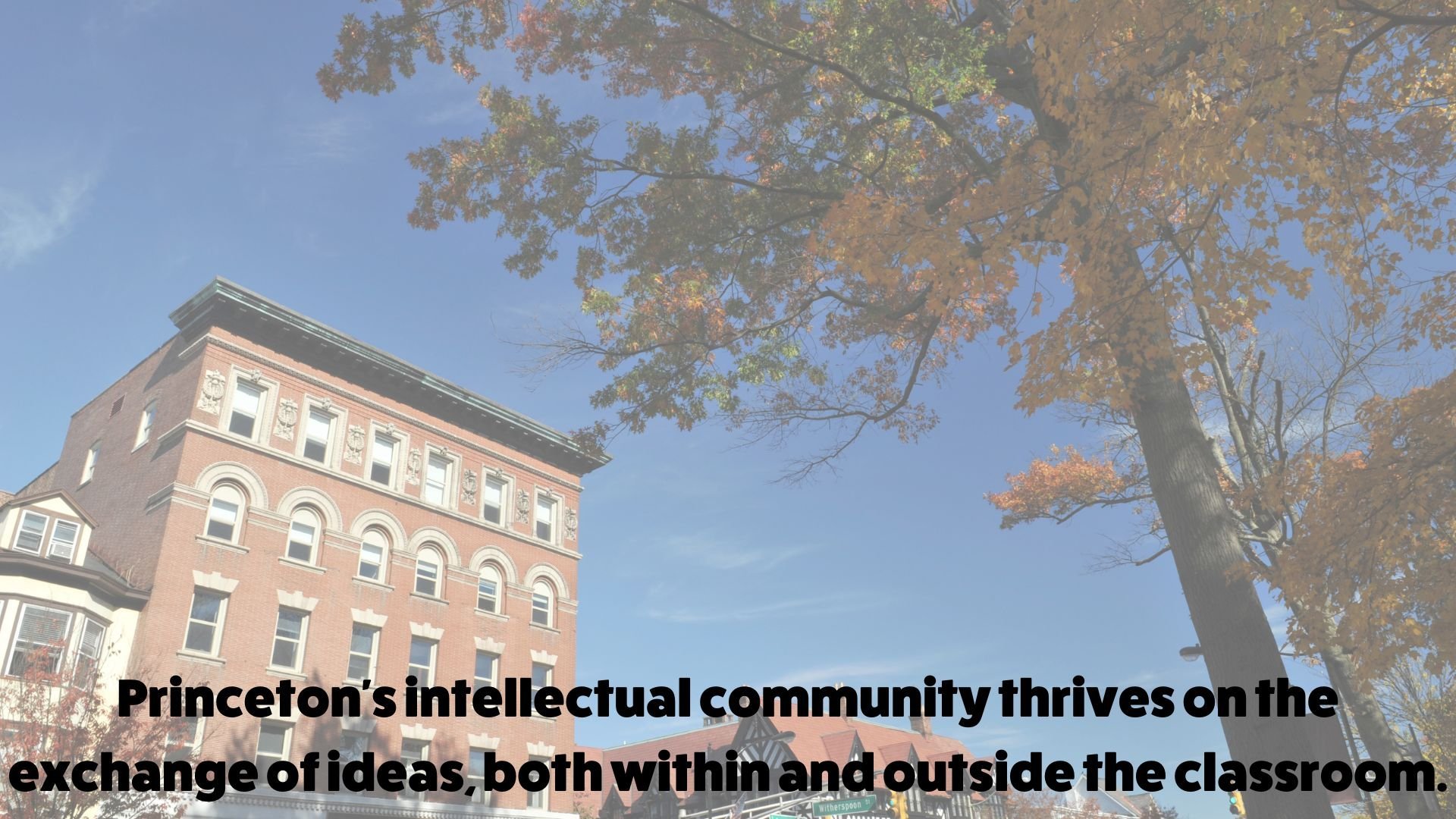What is Princeton Known For? In Service of Humanity
When it comes to prestigious educational institutions, few names evoke as much reverence and admiration as Princeton University. Nestled in the picturesque town of Princeton, New Jersey, this distinguished Ivy League university has a storied legacy of excellence, innovation, and tradition. But what exactly is Princeton known for? In this blog post, we will embark on a captivating journey into the heart of Princeton's esteemed reputation, unveiling the facets that make it a global beacon of academic brilliance.
Founded in 1746, Princeton University holds the distinction of being one of the oldest educational institutions in the United States, steeped in a rich history that spans centuries. Its campus exudes an air of grandeur, with its iconic Nassau Hall standing as a testament to the university's enduring legacy. From U.S. Presidents and Nobel laureates to groundbreaking researchers and influential policymakers, Princeton boasts an impressive list of alumni who have made significant contributions to society.
Interested in showcasing your intellectual vitality and initiative during high school? Find out how YOU can apply artificial intelligence to the subjects that interest you in InspiritAI’s AI Scholars Program. Students in the Inspirit AI Scholars program craft interdisciplinary AI projects engaging subjects of personal interest to them. Additionally, many students who have participated in the AI+X Individual Research Mentorship have gone on to win prestigious awards at various science fair competitions!
Join us as we explore the academic and research prowess that sets Princeton apart, the vibrant intellectual community that fuels interdisciplinary collaboration, and the cultural enrichment that adds a unique dimension to the university's tapestry. Discover why Princeton is not only a renowned center of learning but also a harbinger of transformative education and societal impact.
What is Princeton known for?
A LEGACY OF EXCELLENCE
Princeton University's legacy of excellence spans over two and a half centuries, making it one of the most distinguished and revered educational institutions in the world. From its humble beginnings in 1746 as the College of New Jersey, Princeton has evolved into an academic powerhouse known for its rigorous curriculum, exceptional faculty, and transformative educational experiences.
At the heart of Princeton's legacy is its iconic Nassau Hall, a historic building that stands as a symbol of the university's rich history. Constructed in 1756, Nassau Hall played a significant role in American history, serving as the temporary capital of the United States during the Revolutionary War. Today, it serves as the administrative center of the university, embodying the institution's deep-rooted traditions and enduring commitment to academic excellence.
Throughout its history, Princeton has produced an impressive roster of alumni who have made indelible contributions to society. Notable Princeton alumni include two U.S. Presidents, Woodrow Wilson and James Madison, esteemed Supreme Court Justices, such as Sonia Sotomayor, influential authors like F. Scott Fitzgerald, and renowned scientists, including Richard Feynman and Alan Turing. These illustrious individuals exemplify the impact of a Princeton education and the caliber of students the university attracts.
Princeton's commitment to fostering intellectual curiosity and critical thinking is evident in its curriculum. The university offers a wide range of undergraduate and graduate programs spanning the humanities, social sciences, natural sciences, and engineering. Princeton's faculty, composed of world-class scholars and researchers, provides students with unparalleled mentorship and guidance, encouraging them to explore their passions and reach their full potential.
Moreover, Princeton's emphasis on undergraduate education sets it apart from many other universities. The university's liberal arts curriculum enables students to engage in interdisciplinary learning, allowing them to develop a broad understanding of the world while cultivating their intellectual depth in their chosen fields of study. The small student-to-faculty ratio ensures that students receive personalized attention and have ample opportunities for intellectual discourse and collaboration.
Princeton's commitment to fostering a diverse and inclusive community is also integral to its legacy. The university actively seeks to create an environment where students from all backgrounds can thrive, providing support services, scholarships, and initiatives aimed at promoting access and inclusivity.
From its historic Nassau Hall to its distinguished alumni, Princeton's impact extends far beyond its idyllic campus. As the university continues to shape the minds of future leaders and innovators, its legacy remains firmly rooted in its commitment to excellence and its profound influence on the world stage.
ACADEMIC AND RESEARCH PROWESS
Princeton University stands at the forefront of academic and research excellence, offering a breadth of programs and resources that foster intellectual growth and innovation. With a commitment to rigorous scholarship and a distinguished faculty, Princeton provides an exceptional environment for students to pursue their academic passions and engage in groundbreaking research.
The university's undergraduate programs span a wide range of disciplines, from the humanities and social sciences to the natural sciences and engineering. Princeton's curriculum is designed to cultivate critical thinking, analytical skills, and a deep understanding of the subject matter. Students are encouraged to explore diverse academic interests and to engage in interdisciplinary studies, which further enriches their educational experience.
At the graduate level, Princeton offers numerous renowned programs, attracting scholars from around the world. These programs are led by esteemed faculty who are experts in their respective fields. The graduate students benefit from close mentorship, collaborating with faculty on cutting-edge research projects that push the boundaries of knowledge.
Princeton's faculty is one of its greatest assets, comprising leading scholars, researchers, and practitioners who are renowned in their disciplines. These distinguished professors bring a wealth of expertise and experience to the classroom, inspiring students with their depth of knowledge and passion for their subjects. The faculty's commitment to teaching and mentorship ensures that students receive a world-class education that prepares them for success in their chosen fields.
Research is integral to Princeton's academic culture, and the university supports a broad spectrum of research initiatives across various disciplines. Princeton's research centers and institutes serve as hubs of innovation and collaboration, fostering interdisciplinary approaches to address complex global challenges.
The Princeton Plasma Physics Laboratory (PPPL) is a prime example of Princeton's commitment to scientific research. As a leading center for fusion energy research, PPPL pioneers advancements in plasma physics, fusion energy, and related technologies. The laboratory's researchers and scientists work collaboratively on experimental and theoretical research, with the goal of developing sustainable and clean energy sources for the future.
In addition to the physical sciences, Princeton has made significant contributions to fields such as economics, mathematics, computer science, and the humanities. The university's Department of Economics boasts renowned faculty whose research has shaped economic theory and policy. Princeton's mathematics department has been instrumental in advancing mathematical knowledge through groundbreaking research and collaborations. The computer science department is known for its cutting-edge research in areas like artificial intelligence, algorithms, and data science. Meanwhile, Princeton's humanities departments contribute to scholarly conversations and critical inquiries that expand our understanding of literature, history, philosophy, and more.
Princeton's commitment to research extends beyond its campus, with opportunities for students and faculty to engage in fieldwork and international collaborations. The university encourages students to explore global perspectives, fostering a sense of global citizenship and preparing them to tackle complex global challenges.
Through its comprehensive programs, distinguished faculty, and commitment to interdisciplinary research, Princeton offers students an unparalleled educational experience. The university's contributions to various fields of study, its commitment to pushing the boundaries of knowledge, and its emphasis on intellectual growth position it as a world-class institution at the forefront of academic excellence and research innovation.
INTELLECTUAL COMMUNITY AND INTERDISCIPLINARY COLLABORATION
At Princeton University, the pursuit of knowledge extends beyond individual disciplines. The university nurtures a vibrant intellectual community that fosters collaboration, interdisciplinary exploration, and the free exchange of ideas. This emphasis on intellectual community and interdisciplinary collaboration sets Princeton apart, creating an environment where students and faculty can engage in transformative conversations and contribute to innovative research.
Princeton's commitment to interdisciplinary collaboration is evident in its numerous research centers, institutes, and programs that bridge traditional academic boundaries. These interdisciplinary initiatives serve as catalysts for cross-pollination of ideas, enabling scholars from different fields to come together to address complex and multifaceted problems.
The Princeton Institute for International and Regional Studies (PIIRS) is a prime example of Princeton's interdisciplinary approach. PIIRS facilitates collaborative research, hosts conferences and workshops, and provides funding opportunities for faculty and students engaged in international and regional studies. By fostering interdisciplinary dialogue, PIIRS promotes a comprehensive understanding of global issues and encourages innovative solutions.
Similarly, the Princeton Environmental Institute (PEI) brings together scholars from various disciplines to tackle environmental challenges. PEI offers interdisciplinary programs, funds research projects, and sponsors seminars and events that explore the complex relationships between society and the environment. By fostering collaborations between scientists, policymakers, and scholars from the humanities and social sciences, PEI advances knowledge and promotes sustainable solutions to environmental issues.
Princeton's commitment to interdisciplinary collaboration extends to its undergraduate curriculum. The university encourages students to pursue certificate programs and interdisciplinary majors, enabling them to combine multiple areas of study and tailor their education to their unique interests. Through cross-disciplinary coursework and research opportunities, students engage with diverse perspectives, develop critical thinking skills, and tackle real-world problems from multiple angles.
Moreover, Princeton's intellectual community thrives on the exchange of ideas, both within and outside the classroom. The university hosts an array of lectures, seminars, and symposiums featuring eminent scholars, industry leaders, and prominent thinkers from various fields. These events provide platforms for intellectual discourse, fostering a culture of curiosity, debate, and lifelong learning.
Princeton also promotes an inclusive and collaborative academic environment through its residential college system. Undergraduates are affiliated with one of six residential colleges, where they live, dine, and engage in intellectual and social activities with a diverse group of peers. This close-knit community fosters meaningful relationships, encourages collaboration, and creates opportunities for interdisciplinary interactions among students from different academic backgrounds.
CULTURAL AND ARTISTIC ENRICHMENT
Princeton University is not only a hub for academic excellence but also a vibrant center for cultural and artistic exploration. The university's commitment to fostering creativity and artistic expression adds a unique dimension to the campus experience, enriching the lives of students and the broader community.
The Princeton University Art Museum stands as a testament to the university's dedication to the arts. The museum houses a diverse collection of artworks spanning various periods and cultures, from ancient artifacts to contemporary masterpieces. Students and visitors have the opportunity to engage with art through exhibitions, educational programs, and curated events that promote a deeper understanding and appreciation of visual arts.
The Lewis Center for the Arts is another prominent institution that plays a pivotal role in nurturing creative talents. It offers a range of programs in theater, dance, music, creative writing, and visual arts, providing students with ample opportunities to explore and develop their artistic skills. The Lewis Center hosts performances, exhibitions, and showcases, allowing students to share their artistic creations with the campus and wider community.
In addition to formal artistic programs, Princeton's campus thrives with artistic events, performances, and cultural celebrations. The campus hosts renowned guest artists, musicians, and performers, bringing diverse and influential voices to the community. These events contribute to a vibrant and inclusive artistic ecosystem, fostering a sense of cultural appreciation and promoting dialogue across different artistic traditions.
Princeton's commitment to cultural and artistic enrichment extends beyond its campus borders. The university actively engages with the local community through partnerships and collaborations with local arts organizations, offering outreach programs, workshops, and initiatives that foster creativity and artistic expression among individuals of all ages.
Conclusion
Princeton University's enduring reputation as a premier educational institution rests upon its legacy of excellence, its commitment to intellectual growth, and its profound impact on the world. From its renowned faculty and rigorous academic programs to its vibrant intellectual community and interdisciplinary collaborations, Princeton provides an environment where students can thrive, explore their passions, and contribute to society.
Through its distinguished alumni, Princeton's influence extends far beyond its idyllic campus. Its graduates have made significant contributions in various fields, shaping policy, advancing scientific discoveries, and enriching cultural and artistic landscapes.
Princeton's legacy of excellence is fueled by a relentless pursuit of knowledge, a dedication to rigorous scholarship, and a commitment to fostering critical thinking and intellectual curiosity. With its outstanding faculty, state-of-the-art research facilities, and emphasis on interdisciplinary collaboration, the university continues to push the boundaries of knowledge, tackling complex global challenges and preparing students to be leaders, innovators, and catalysts for positive change.
As Princeton University remains at the forefront of academic and research excellence, its impact on the world stage continues to be felt, making it a truly exceptional institution that embodies the power of education and the transformative potential of a dedicated community of scholars.
About Inspirit AI
AI Scholars Live Online is a 10 session (25-hour) program that exposes high school students to fundamental AI concepts and guides them to build a socially impactful project. Taught by our team of graduate students from Stanford, MIT, and more, students receive a personalized learning experience in small groups with a student-teacher ratio of 5:1.



